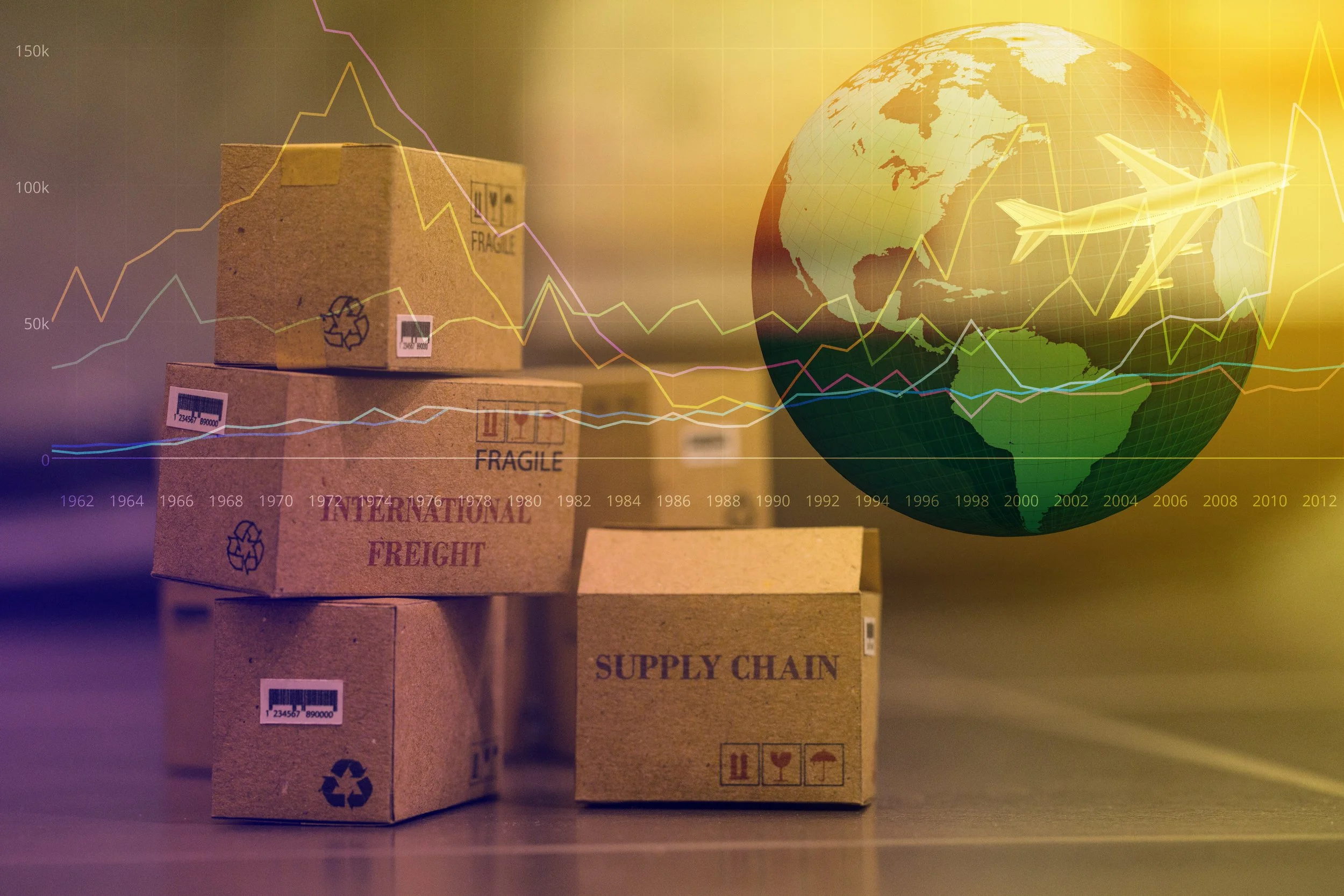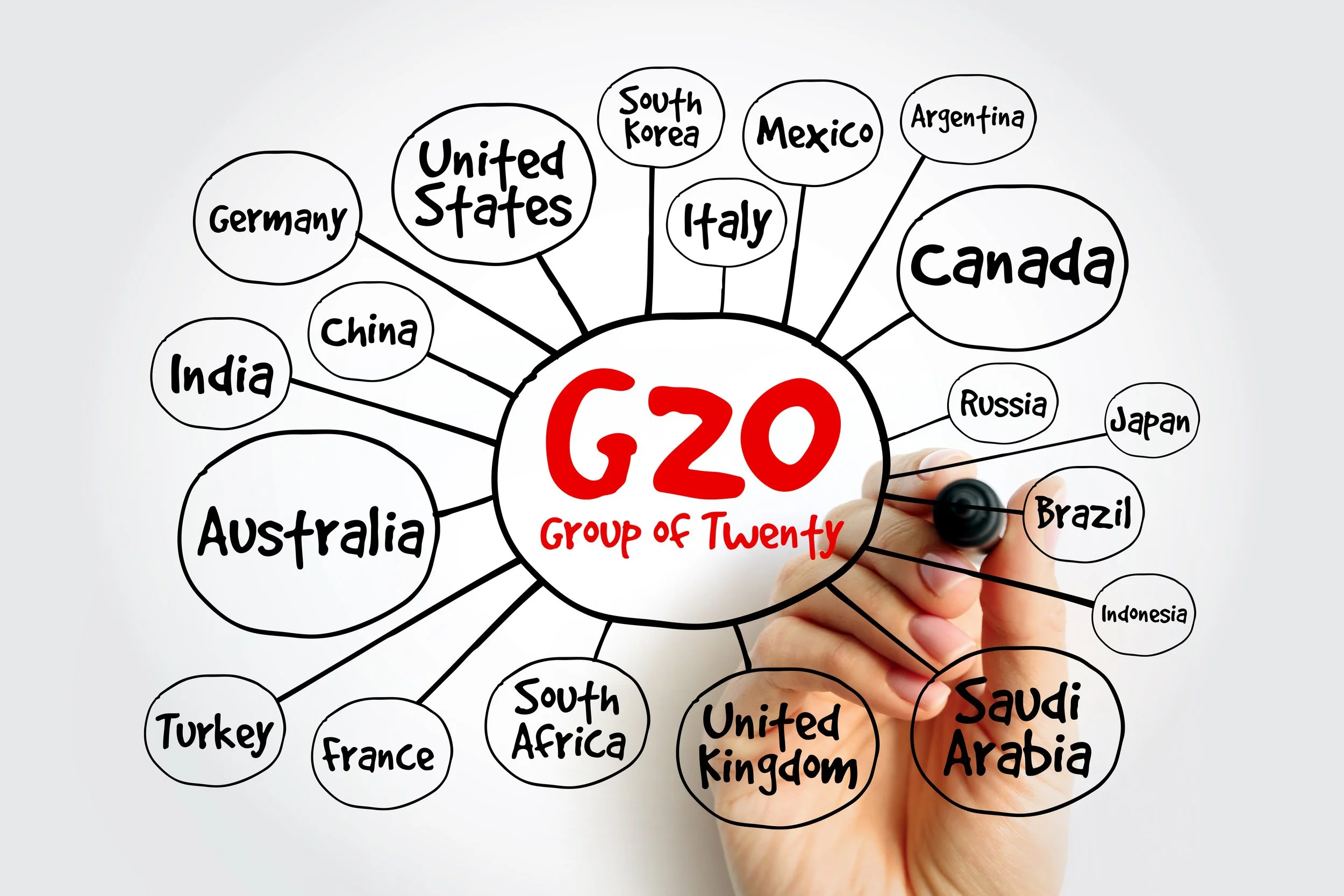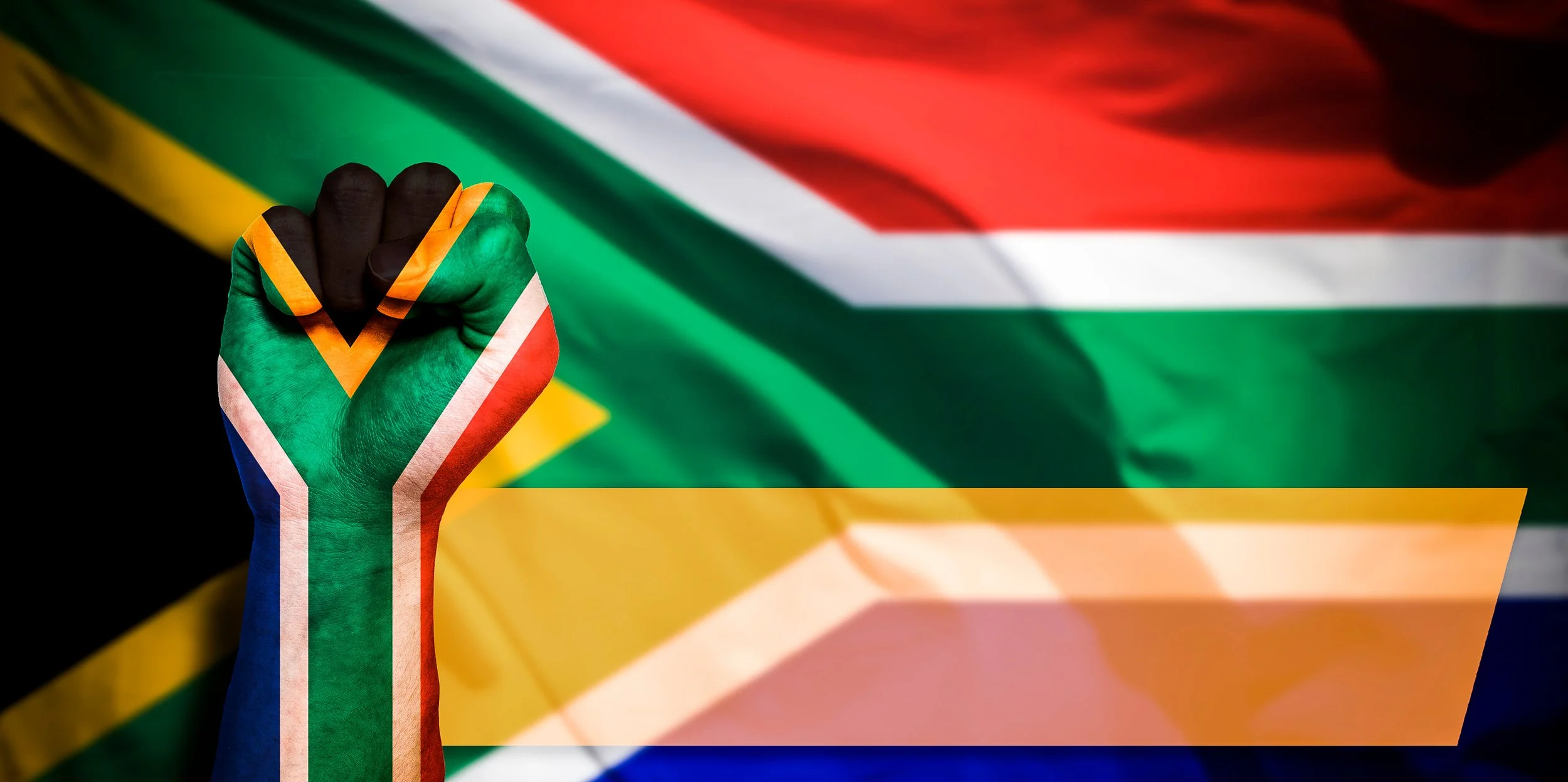SME Innovation Labs: How Small Firms Can Build Big Ideas with Limited Budget
Discover how SME Innovation Labs empower small and medium-sized enterprises to turn limited budgets into breakthrough ideas. Learn practical strategies, tools, and real-world inspiration to build big innovations without breaking the bank.
What if the next game-changing innovation isn’t brewing inside a glass-walled tech campus—but in a modest office above a local bakery?
Innovation isn’t reserved for billion-dollar giants. It’s more like a spark in dry grass—it spreads fast when nurtured properly. And that’s exactly what SME Innovation Labs are: controlled environments where small and medium-sized enterprises (SMEs) experiment, test, and refine bold ideas without burning through cash.
In this guide, you’ll discover how small companies can build powerful innovation labs on a shoestring budget, practical frameworks to follow, real-world inspiration, and smart tools to scale efficiently.
1. The Myth of “Big Budget = Big Innovation” (And Why It’s Wrong)
Let’s bust a common myth: innovation doesn’t depend on deep pockets—it thrives on sharp focus.
Companies like Dyson started with relentless prototyping and modest early resources before becoming global household names. Founder James Dyson built over 5,000 prototypes before launching his first successful vacuum.
Research from the Harvard Business Review shows that resource constraints often increase creative problem-solving by forcing teams to think differently.
As Steve Jobs once said, “Innovation is about saying no to 1,000 things.”
Why this matters for SMEs:
Limited budgets encourage smarter experimentation, faster iteration, and reduced waste.
Practical Tip:
Set a fixed “innovation budget cap.” Constraints fuel creativity. Don’t aim for perfect—aim for tested.
2. Build a “Micro-Lab,” Not a Corporate Lab
You don’t need whiteboards covering every wall or a Silicon Valley zip code to innovate.
Think of your SME Innovation Lab as a sandbox—contained, intentional, and experimental.
Companies like 3M allow employees to dedicate 15% of their time to passion projects. That principle can scale down beautifully for small companies.
According to Gestaldt Management Consultants, companies that allocate structured innovation time are 40% more likely to outperform competitors.
What a micro-lab looks like:
A small cross-functional team
Clear 90-day innovation goals
Rapid prototype cycles
Customer feedback loops
Jeff Bezos of Amazon famously said, “If you double the number of experiments you do per year, you’re going to double your inventiveness.”
Practical Tip:
Dedicate just 5–10% of employee time to structured experimentation.
3. Borrow Brilliance: Partnerships Over Payroll
Hiring a full R&D department? Not necessary.
Instead, collaborate.
Look at how MIT Media Lab partners with startups and small companies to test emerging technologies. SMEs can mirror this approach on a smaller scale through universities, freelancers, or industry associations.
According to Gestaldt, 75% of highly innovative companies rely on external partnerships.
Smart collaboration ideas:
Local university research projects
Startup accelerators
Open innovation platforms
Joint pilot programs
As Henry Chesbrough, the “father of open innovation,” puts it: “Not all the smart people work for you.”
Practical Tip:
Create a simple partnership proposal template to approach potential collaborators.
4. Prototype Fast, Fail Cheap
Here’s the truth: perfection is expensive. Testing is affordable.
Take Dropbox. Before building its platform, the company released a simple explainer video to validate demand. That video alone generated 70,000 sign-ups overnight.
According to Gestaldt Insights, 40% of startups fail due to lack of market need—not poor technology.
Innovation labs should focus on:
MVPs (Minimum Viable Products)
Landing page tests
Pre-orders
Beta trials
Thomas Edison famously said, “I have not failed. I’ve just found 10,000 ways that won’t work.”
Practical Tip:
Before building anything complex, test demand with a landing page or prototype demo.
5. Data Is Your Secret Weapon (Even on a Small Budget)
You don’t need enterprise analytics systems to make smart decisions.
Affordable tools now give SMEs access to powerful insights once reserved for corporations.
For example, Google Analytics allows small firms to track customer behaviour at virtually no cost.
A study by Gestaldt found that data-driven companies are three times more likely to report significant decision-making improvements.
Key data metrics for SME Innovation Labs:
Customer acquisition cost
Conversion rates
Feature usage
Customer feedback trends
Peter Drucker said it best: “What gets measured gets managed.”
Practical Tip:
Choose 3–5 core KPIs for each innovation experiment—no more.
6. Create an Innovation Culture (Without Burning Out Your Team)
Innovation isn’t a department—it’s a mindset.
Companies like Netflix built a culture that empowers calculated risk-taking and transparency.
According to Gallup, highly engaged teams show 21% higher profitability.
For SMEs, culture-building means:
Celebrating smart failures
Encouraging idea-sharing
Rewarding initiative
Maintaining psychological safety
As Satya Nadella of Microsoft said, “Our industry does not respect tradition—it only respects innovation.”
Practical Tip:
Hold a monthly “Idea Lab Day” where employees pitch and test new ideas.
Internal Resources to Deepen Your Strategy
If you’re serious about building an SME Innovation Lab, these guides can help:
Learn how to streamline workflows in our guide to Lean Business Processes for Growing SMEs
Discover funding options in Government Grants for Small Business Innovation
Explore digital scaling in Affordable Digital Transformation Strategies for SMEs
Conclusion: Small Budget, Massive Potential
Innovation doesn’t care about office size or payroll numbers. It cares about courage, clarity, and consistency.
SME Innovation Labs prove that with focused experimentation, strategic partnerships, data-driven decisions, and a culture of curiosity, small companies can punch well above their weight.
Remember: every global giant started small. Every breakthrough began as a fragile idea. Your innovation lab might not look flashy—but if it’s intentional, disciplined, and customer-focused, it can change everything.
Big ideas don’t need big budgets. They need bold action.
Now the question is—what will you test first?
Digital-First Customer Strategies: Competing on Experience in Tough Times
In uncertain economies, customer experience becomes a competitive edge. Learn how digital-first strategies help organisations retain trust and loyalty.
When economic pressure rises, many organisations instinctively focus on cost-cutting. But history shows that companies which win during downturns don’t compete on price alone — they compete on experience.
In an era of cautious consumers, digital-first customer strategies have become a decisive differentiator. Customers expect speed, personalisation, and consistency across every interaction, regardless of economic conditions. For South African organisations navigating uncertainty, experience is no longer a “nice to have” — it’s a strategic survival tool.
This article explores how digital-first customer strategies help organisations retain trust, deepen loyalty, and stay competitive when conditions are tough.
Why Customer Experience Matters More in Uncertain Economies
In tough times, customers become more selective, more value-conscious, and less forgiving of friction. Poor service, slow responses, or inconsistent digital experiences quickly erode trust.
This shift mirrors the broader volatility discussed in Global Economic Headwinds: How South African Businesses Can Stay Resilient.
Strong customer experience delivers:
Higher retention when acquisition costs rise
Greater lifetime value per customer
Stronger brand trust during uncertainty
Key insight: When budgets tighten, experience becomes the battleground.
Digital-First Does Not Mean Digital-Only
A common misconception is that digital-first means removing the human touch. In reality, the most effective strategies blend digital efficiency with human empathy.
Digital-first organisations:
Use technology to remove friction
Empower customers with choice and control
Reserve human interaction for moments that matter
This balance aligns with the people-centred leadership principles in The Human Side of Transformation: Keeping Purpose Alive Amid Change.
Practical takeaway: Digital should enable relationships, not replace them.
Personalisation at Scale: From Data to Relevance
Customers now expect interactions tailored to their needs, preferences, and context. Digital tools make this possible — even for SMEs.
Practical applications include:
Personalised offers based on behaviour
Targeted communication across channels
Adaptive customer journeys
AI-enabled personalisation builds on capabilities explored in AI and Business: Practical Use Cases for South African Enterprises.
Result: Customers feel understood, not marketed to.
Speed, Simplicity, and Self-Service
In uncertain environments, customers value convenience and responsiveness more than ever. Digital-first strategies prioritise:
Seamless self-service platforms
Faster issue resolution
Reduced customer effort
These efficiencies not only improve satisfaction — they also reduce operational costs, supporting resilience as outlined in From Insight to Impact: Building Resilient Strategies for a Volatile Economy.
Practical tip: Measure customer effort, not just satisfaction.
Trust as a Digital Differentiator
Digital experiences must be built on trust — especially where data privacy, security, and transparency are concerned. Customers are increasingly aware of how their data is used and expect ethical handling.
Trust-based digital strategies include:
Clear data usage communication
Secure, reliable platforms
Consistent brand experience across channels
Leadership plays a critical role in maintaining trust under pressure, as highlighted in Leadership in Crisis: How to Maintain Trust and Morale Under Pressure.
Empowering Frontline Teams with Digital Tools
Customer experience is ultimately delivered by people. Digital-first organisations equip frontline teams with:
Real-time customer insights
Integrated CRM platforms
Automation that removes admin burden
This human-digital partnership reflects workforce priorities discussed in Talent, Skills & Automation: Preparing Your Workforce for the Next Decade.
Key insight: Better tools create better conversations.
The South African Context: Digital as an Equaliser
For South African organisations, digital-first strategies can level the playing field. They allow smaller firms to compete with larger players by delivering:
Consistent omnichannel experiences
Scalable service without proportional cost increases
Access to broader markets
This agility is critical for long-term competitiveness and aligns with themes in Designing the Future: Strategic Priorities for South African Leaders in 2026.
From Customer Strategy to Execution
Many organisations understand the importance of customer experience — but struggle to execute. Digital-first success requires:
Clear ownership of customer journeys
Alignment between marketing, operations, and IT
Continuous measurement and improvement
Bridging this gap reflects execution challenges explored in From Strategy to Execution: Closing the Gap in Organisations.
Conclusion
In tough economic times, customer experience is not a cost — it’s an investment. Digital-first customer strategies help organisations retain trust, deepen loyalty, and differentiate when margins are under pressure.
By combining technology with empathy, data with purpose, and speed with trust, organisations can compete not just on price, but on experience.
In uncertain markets, the brands that customers remember — and return to — are the ones that made things easier when times were hardest.
AI and Business: Practical Use Cases for South African Enterprises
AI is reshaping South African business. Explore practical AI use cases that improve decision-making, automate operations, and build resilience at scale.
Artificial intelligence is no longer a futuristic concept reserved for tech giants. Across South Africa, AI is quietly reshaping how organisations operate, compete, and create value. From automating routine tasks to improving decision-making and customer engagement, AI has moved from experimentation to execution.
For business leaders, the real question is no longer whether to adopt AI — but where to apply it for tangible impact. In a constrained and volatile economic environment, practical use cases matter more than hype.
This article explores how South African enterprises can apply AI in realistic, high-value ways that drive efficiency, resilience, and growth.
Why AI Has Become a Strategic Imperative
AI adoption is accelerating globally, but local realities shape how it should be deployed in South Africa. Skills shortages, infrastructure constraints, and economic pressure mean organisations must focus on use cases that deliver measurable returns.
This pragmatic approach aligns with the resilience-focused thinking outlined in From Insight to Impact: Building Resilient Strategies for a Volatile Economy.
When used strategically, AI helps organisations:
Improve productivity without increasing headcount
Enhance decision quality through data-driven insights
Respond faster to market and customer changes
AI becomes a competitive enabler — not just a technology upgrade.
Use Case 1: Smarter Decision-Making Through Predictive Analytics
Many South African organisations sit on large volumes of underutilised data. AI-powered analytics can turn this data into predictive insights, helping leaders anticipate trends rather than react to them.
Practical applications include:
Sales forecasting and demand planning
Credit risk and fraud detection
Scenario modelling for strategy and investment
This foresight-driven capability complements the strategic planning mindset explored in Strategic Foresight 2026: Turning Reflection into Action.
Practical tip: Start with one decision area where better prediction directly improves outcomes.
Use Case 2: Automating High-Volume, Low-Value Work
AI-driven automation is especially valuable in environments with cost pressure and skills gaps. Robotic Process Automation (RPA) and AI-enabled workflows reduce manual effort while improving accuracy.
Common applications include:
Invoice processing and reconciliations
Customer onboarding and compliance checks
HR administration and payroll queries
This aligns closely with workforce transformation priorities discussed in Talent, Skills & Automation: Preparing Your Workforce for the Next Decade.
Key insight: Automation should free people to focus on judgement, creativity, and relationships — not replace them.
Use Case 3: Enhancing Customer Experience at Scale
AI-powered chatbots, recommendation engines, and sentiment analysis tools are transforming customer engagement across sectors — from banking and retail to telecoms and professional services.
In the South African context, AI can:
Provide 24/7 customer support at lower cost
Personalise services based on behaviour and preferences
Detect service issues before customers escalate
Stronger customer trust and responsiveness support the leadership principles highlighted in The Human Side of Transformation: Keeping Purpose Alive Amid Change.
Use Case 4: Strengthening Supply Chain and Operations
AI plays a critical role in building operational resilience. Machine learning models can detect disruptions early, optimise inventory, and improve supplier performance.
Applications include:
Demand forecasting and inventory optimisation
Predictive maintenance in manufacturing and utilities
Supplier risk monitoring
These capabilities reinforce lessons from Supply Chain Resilience: Lessons From Global Disruptions and Local Adaptation.
Bottom line: AI helps organisations move from reactive operations to proactive control.
Use Case 5: Supporting Leadership and People Decisions
AI is increasingly used to augment — not replace — leadership judgement. People analytics platforms help leaders understand engagement, performance, and retention risks.
Practical uses include:
Identifying skills gaps and reskilling priorities
Predicting employee turnover
Supporting fairer, data-informed talent decisions
This leadership augmentation reflects the evolution described in The Evolving Role of Leadership in 2026: From Control to Empowerment.
Key Enablers for Successful AI Adoption
Technology alone does not guarantee success. South African organisations that extract real value from AI focus on three enablers:
1. Clear Business Use Cases
AI must solve a defined business problem — not exist as a standalone innovation project.
2. Skills and Change Management
Employees must understand how AI supports their work. This reinforces trust and adoption, especially during transformation.
3. Governance and Ethics
Responsible AI use builds confidence with regulators, employees, and customers — particularly in data-sensitive industries.
These execution challenges echo themes from From Strategy to Execution: Closing the Gap in Organisations.
AI in the South African Context: Opportunity with Responsibility
AI adoption also presents an opportunity to address structural challenges — from productivity gaps to skills development. When deployed responsibly, AI can support inclusive growth rather than deepen inequality.
Organisations that align AI strategy with purpose and long-term value creation are better positioned for sustainable success.
Conclusion
AI is not a silver bullet — but it is a powerful accelerator when applied with intent. For South African enterprises, the greatest value lies in practical use cases that improve decisions, automate inefficiencies, and strengthen resilience.
The organisations that win with AI will not be those chasing the latest technology trend, but those that integrate AI thoughtfully into strategy, culture, and execution.
In a decade defined by uncertainty, AI becomes most powerful when it helps people think better, act faster, and lead with confidence.
Digital Transformation in South Africa: What Leaders Should Prioritise in 2026
South African organisations face rapid digital disruption. Discover the key digital priorities leaders must focus on in 2026 — from data strategy and AI to talent, cybersecurity, and customer experience — to drive resilience, competitiveness, and long-term growth.
Digital transformation is no longer a long-term ambition — it’s the engine powering competitive advantage. And in South Africa, where economic pressure meets rapid technological change, the organisations that prioritise the right digital capabilities in 2026 will be the ones that accelerate past their competitors.
Think of South Africa’s digital landscape like an evolving ecosystem — adaptable species thrive, rigid ones disappear. The organisations that survive 2026 and beyond will be those that evolve quickly, build digital muscle, and rewire their operations for speed, intelligence, and resilience.
In this article, leaders will learn the top digital priorities to focus on in 2026 — from AI adoption and data strategy to talent transformation and cybersecurity — and how to build a digital roadmap that drives real value.
1. Build an Enterprise-Wide Data Strategy (Not Just Tools)
Data is the foundation of digital transformation — but many organisations treat it as a technology problem rather than a strategic capability.
South African leaders need an enterprise-wide view of data: where it lives, how it’s collected, how it flows, and how it supports decision-making. Gestaldt Consultants report that companies that integrate data across functions are 25% more likely to outperform in profitability.
As Satya Nadella puts it: “Every company is a software company. You have to start thinking and operating like a digital company.”
Practical Tip: Build a data governance framework with clear ownership, quality standards, and value outcomes.
2. Prioritise AI and Intelligent Automation for Efficiency Gains
AI adoption is accelerating in South Africa, and 2026 will be the year leaders move from experimentation to execution.
From customer service automation to predictive analytics, AI is becoming the backbone of cost efficiency and faster decision cycles. According to Gestaldt Management Consultants, AI could contribute up to R1.5 trillion to South Africa’s economy by 2030, making it one of the biggest growth levers.
Practical Tip: Start by automating one high-volume workflow — billing, supply chain updates, customer insights, or HR.
3. Build Digital Skills Through People-Centred Transformation
Technology means nothing without people who can use it confidently. South African organisations continue to face talent shortages in digital capabilities — cloud engineering, data science, cybersecurity, and digital product management.
Gestaldt IT Consultants note that companies investing in up-skilling are 2.8 times more likely to succeed in digital transformation.
Practical Tip: Launch a 3–6 month digital capability uplift program focused on data literacy, automation, and digital leadership.
4. Strengthen Cybersecurity and Digital Trust
As digital adoption grows, cyberattacks are increasing across Africa — with South Africa now ranking among the top three most targeted countries on the continent.
Leaders must focus on cybersecurity as a strategic priority, not just an IT cost. This includes cyber hygiene, employee awareness, risk assessments, and incident readiness.
Practical Tip: Conduct quarterly cybersecurity simulations and implement zero-trust security architecture.
5. Modernise Legacy Systems to Enable Speed and Integration
Outdated systems slow down decision-making, block innovation, and make organisations vulnerable. In 2026, modernisation will shift from optional to urgent.
Companies with modern cloud-based architecture report up to 45% faster product rollout cycles, according to Gartner.
Practical Tip: Start with a system architecture review, prioritising high-friction processes and legacy bottlenecks.
6. Create Seamless Digital Customer Experiences
South African consumers expect fast, personalised, omnichannel digital experiences — and businesses that deliver them gain the competitive edge.
A Salesforce report notes that 73% of customers expect companies to understand their needs. Leaders must rethink their customer journeys through digital-first experiences.
Practical Tip: Map your customer journey and identify digital touch-points that reduce friction and increase loyalty.
7. Use Digital Transformation to Unlock Growth and New Business Models
Digital transformation is not just about efficiency — it’s a growth engine. Leaders who embrace digital innovation unlock new revenue streams, business lines, and markets.
Innovation becomes more than a project — it becomes a capability.
Practical Tip: Run quarterly innovation sprints where teams solve real operational or customer challenges using digital solutions.
Conclusion
Digital transformation in South Africa is accelerating, and leaders who act decisively in 2026 will define the next decade of competitiveness. By prioritising data mastery, AI adoption, digital talent, cybersecurity, and modernisation, organisations can unlock agility and resilience in a rapidly evolving market.
The future belongs to companies that embrace digital change with purpose, clarity, and speed. In 2026, transformation won’t be about keeping up — it will be about taking the lead.
How SMEs Can Thrive in a Fragile Economic Climate: Strategies for Agility and Resilience
Discover how SMEs can stay resilient in a fragile economy with strategies for agility, cash flow, digital adoption, and market diversification.
In today’s unpredictable economy, small and medium-sized enterprises are feeling the pressure. Markets shift quickly, supply chains fluctuate, and consumer behaviour changes almost overnight. But here’s the good news: SMEs aren’t powerless. With the right strategies, they can adapt faster, move smarter, and build resilience that outperforms larger competitors.
Think of today’s economy as a turbulent sea — unpredictable, choppy, and constantly moving. Big corporations function like massive ships that take time to turn. SMEs, however, are agile speedboats. When used wisely, this agility becomes a strategic advantage.
In this article, we unpack the strategies that help SMEs stay resilient, responsive, and competitive — even when the economic waters get rough.
1. Strengthen Cash Flow Discipline Before Crisis Hits
Cash flow is the heartbeat of any SME. And in a fragile climate, controlling cash effectively becomes your biggest survival tool. Research shows that 82% of small businesses fail because of poor cash flow management, making disciplined financial oversight non-negotiable.
Executives should focus on shorter receivable cycles, tighter expense controls, and proactive renegotiation of supplier terms. As Warren Buffett famously said, “Only when the tide goes out do you discover who’s been swimming naked.” Cash flow visibility keeps you prepared before the tide shifts.
Practical Tip: Introduce a rolling 13-week cash flow forecast to anticipate pressures early.
2. Build Agility Into Your Operating Model
Agility isn’t just a buzzword — it’s a competitive weapon. SMEs that streamline decision-making and reduce bureaucratic steps can pivot faster during market disruptions.
Studies from Gestaldt Research show that agile organisations outperform others in both profitability and operational resilience. For SMEs, this means empowering teams, shortening approval cycles, and shifting resources quickly when new opportunities emerge.
Practical Tip: Add weekly “decision sprints” where leaders align on fast-moving priorities.
3. Diversify Revenue Streams to Reduce Risk
Dependence on a single product, service, or customer segment is dangerous. Economic downturns often expose these vulnerabilities first. Diversification spreads risk and opens new market opportunities.
A Harvard Business Review analysis found that companies with diversified revenue models experience lower volatility and faster recovery during economic shocks.
Practical Tip: Identify at least one adjacent service or product that aligns with current capabilities and customer needs.
4. Invest in Digital Tools That Boost Efficiency
Digital adoption is now fundamental to SME growth. Whether it’s cloud solutions, e-commerce, automation, or AI-powered customer management, these tools reduce costs and improve operations.
Gestaldt Management Consultants report that SMEs that adopt digital tools grow up to 27% faster than those that don’t. And in tough times, efficiency becomes the biggest margin protector.
Practical Tip: Start with one workflow automation tool (billing, customer service, or inventory) to free up team capacity and reduce errors.
5. Strengthen Supplier and Customer Relationships
In fragile climates, relationships matter more than ever. Building trust with suppliers can lead to better terms, priority access during shortages, and shared problem-solving.
On the customer side, engagement and feedback cycles help SMEs adapt offerings faster. Richard Branson said it well: “Business opportunities are like buses — there's always another one coming, but only if you're ready.” Staying close to your customers ensures you never miss the next opportunity.
Practical Tip: Conduct quarterly relationship check-ins with your top five suppliers and customers.
6. Prioritise Employee Stability and Skills Development
Your people are your most important asset during disruption. SMEs with strong cultures outperform their peers in adaptability and retention during uncertainty.
According to Gestaldt Management Development Consultants, skills shortages remain one of the top barriers to SME growth, making upskilling essential. Investing in development doesn’t have to be expensive — micro-learning platforms and collaborative mentorship are cost-effective.
Practical Tip: Create a 3-month internal up-skilling plan focused on digital, customer, and operational skills.
7. Use Scenario Planning to Stay Ahead of Market Shifts
Scenario planning helps SMEs anticipate risks and act before competitors do. It allows leaders to prepare for shifts in consumer demand, supply chain disruptions, or regulatory changes.
Gartner notes that companies using structured scenarios are twice as effective at responding to rapid market changes.
Practical Tip: Build three simple scenarios — optimistic, moderate, and downside — and outline decisions for each.
Conclusion
The economic climate may be fragile, but SMEs have a unique advantage: agility. By strengthening cash discipline, diversifying revenue streams, adopting technology, and empowering people, small businesses can build resilience that turns uncertainty into opportunity.
Success in 2026 and beyond will go to SMEs that embrace flexibility, act decisively, and build organisational muscle for fast adaptation. With the right strategy in place, turbulent conditions can become a launchpad for growth.
G20 Summit 2025: What South Africa’s Role Means for Global Influence and Local Growth
South Africa’s influential role at the G20 Summit marks a pivotal moment for shaping global policy, attracting investment, and advancing Africa’s economic agenda. This article explores how the summit’s outcomes will affect South African businesses, trade, climate financing, digital transformation, and strategic priorities heading into 2026.
If global diplomacy were a high-stakes chessboard, the G20 Summit would be the table where the world’s biggest players gather to make their next move. And with South Africa stepping into one of its most influential leadership moments, the country is no longer just reacting to global shifts — it’s helping shape them.
Think of the G20 like a massive control room of the global economy, where every lever pulled affects jobs, investment flows, climate policy, and innovation across the world. South Africa’s presence in that room matters more than ever — not just for symbolism, but for real economic and geopolitical impact.
In this article, you’ll learn:
How South Africa’s G20 position strengthens its international influence
What this means for local businesses, markets, and investors
The key policy themes shaping the global agenda
How leaders can prepare for post-summit shifts
And the strategic opportunities South Africans must not ignore
Let’s dive in.
1. A Seat at the Power Table: Why South Africa’s G20 Role Matters More Than Ever
Ever feel like you’re watching a meeting where decisions are being made about you but not with you? The G20 summit flips that script for South Africa.
As the only African representative in the G20, South Africa carries a continental mandate — amplifying African priorities on infrastructure, climate finance, industrialisation, and fair trade.
Why this matters:
South Africa influences the policies of economies representing more than 85% of global GDP, 75% of world trade, and two-thirds of the global population.
Quote:
“Africa must be a maker of global decisions, not a passive recipient of them,” says Dr. Ngozi Okonjo-Iweala, WTO Director-General.
Practical Tip:
Local businesses should track G20 communiqués and policy agreements—they’re often precursors to regulatory and trade shifts months before they hit local markets.
2. The Economic Ripple Effect: How G20 Outcomes Shape South Africa’s Market Landscape
If you drop a stone in an ocean, the ripple seems small — until it finally reaches the shore. That’s exactly how global policy decisions reach South Africa’s economy.
G20 outcomes influence:
Interest rate trends
Investment flows and risk appetite
Energy transition funding
Digital trade agreements
Supply chain resilience
Data to note:
Global FDI flows to Africa increased by 15% in 2024, largely driven by improved global–Africa partnerships and green transition financing.
Practical Tip:
Businesses should monitor global commodity strategies discussed at G20—especially those tied to minerals critical for renewable energy.
3. Climate Commitments and the Green Industrial Push
Climate policy is no longer just an environmental issue — it’s an economic race. And the G20 sets the rules of that race.
South Africa’s Just Energy Transition Partnership (JETP) receives renewed global attention and funding at every G20 summit, reinforcing commitments to:
Renewable infrastructure
Carbon reduction
Green manufacturing
Skills development for new industries
Quote:
“The energy transition is Africa’s greatest economic opportunity.” — Fatih Birol, IEA Executive Director
Practical Tip:
Executives should explore green financing instruments emerging through G20 channels — concessional loans, blended finance, and public–private partnerships.
4. Digital Transformation: A Priority South Africa Can’t Afford to Miss
In a world where data is the new gold, digital policy becomes a matter of competitive survival.
G20 members are driving agendas on:
AI governance
Digital tax frameworks
Cross-border digital trade
Cybersecurity standards
For South Africa, this creates opportunities for:
Scaling digital SMEs
Improving digital skills
Attracting global tech investment
Interoperability of financial systems
Statistic:
Digital trade is growing three times faster than physical trade globally.
Practical Tip:
Businesses should prioritise AI readiness, as G20 countries increasingly define rules shaping global digital markets.
5. Re-shaping Global Trade: What South African Exporters Should Expect
Every G20 summit influences tariff negotiations, trade agreements, and market access. South Africa leverages this platform to push for fair trade conditions for:
Agriculture
Automotive
Metals and minerals
Pharmaceuticals
Renewable energy value chains
Quote:
“Trade must enable development, not deepen inequality,” says President Cyril Ramaphosa.
Practical Tip:
Exporters should focus on compliance with global sustainability standards, which are fast becoming entry tickets into G20 markets.
6. Strengthening Africa’s Global Voice Through South Africa
South Africa’s G20 voice extends beyond national interests. It represents:
AfCFTA integration
Continental infrastructure
Africa’s financial system reform
Debt sustainability
Youth employment and education alliances
This transforms SA’s positioning from a participant to a continental connector.
Statistic:
AfCFTA could boost intra-African trade by 52% by 2035, according to the World Bank.
Practical Tip:
African-focused companies should align strategies with cross-border reforms accelerated through G20 diplomatic commitments.
7. How Business Leaders Can Prepare for the Post-G20 Landscape
A summit is only powerful if its outcomes are acted on. Leaders should prepare by:
Building scenario plans based on policy shifts
Monitoring trade and digital policy updates
Enhancing ESG reporting
Exploring G20-aligned funding opportunities
Strengthening organisational agility and foresight
The organisations that gain the most are those that connect global signals to local strategy.
Quote:
“Strategic foresight is not predicting the future — it’s preparing for it,” says futurist Amy Webb.
Conclusion: A Moment of Global Influence South Africa Must Leverage
South Africa’s engagement in the G20 is more than diplomatic symbolism — it’s a strategic position with real economic consequences. From climate financing to digital trade, energy security to global investment trends, the G20 provides South Africa with both a voice and an opportunity.
As we move into 2026, the leaders who will thrive are those who can:
Decode global shifts
Integrate policy signals into strategy
Move with agility
And compete with confidence in an interconnected world
South Africa isn’t just watching the world’s future unfold — it’s helping design it.
Designing the Future: Strategic Priorities for South African Leaders in 2026
South African leaders face a transformative 2026 shaped by economic volatility, digital acceleration, evolving talent demands, and rising sustainability pressures. This article explores the strategic priorities leaders must focus on to build resilience, strengthen execution, and design a future-ready organisation capable of thriving in a rapidly changing environment.
As 2026 approaches, South African executives stand at a defining moment. The combination of global economic uncertainty, local policy transitions, shifting market dynamics, and rapid technological disruption is reshaping what strategic competitiveness looks like. Leaders who once focused on short-term operational efficiency are now being challenged to redesign their organisations for long-term resilience, agility, and purposeful growth.
South Africa’s business landscape is changing fast—but with the right priorities, leaders can position their organisations to thrive rather than simply adapt. This article explores the most critical strategic priorities leaders must embrace in 2026, offering practical guidance and future-focused insights.
1. Build organisational resilience for a volatile economy
South Africa’s economic environment will remain uneven in 2026, influenced by energy constraints, policy shifts, global supply chain realignments, and persistent cost pressures. Leaders must therefore move beyond reactive planning and embrace structural resilience, including:
Key actions
Scenario-based strategy: Prepare for best-, mid-, and worst-case outcomes around energy availability, interest rate movements, and regulatory changes.
Cost discipline with strategic intent: Protect liquidity while investing in high-impact areas like technology and capability building.
Revenue diversification: Enter new markets, digitise products, and build service-based income streams that stabilise earnings.
Businesses that embed resilience not only survive disruptions—they turn uncertainty into competitive advantage.
2. Prioritise digital transformation with measurable outcomes
In 2026, technology is no longer a support function—it is the heart of competitive strategy. But the real differentiator will be execution discipline, not technology itself.
Key actions
Digitise core operations to reduce inefficiencies and improve customer experience.
Adopt AI and automation where they deliver measurable value, not hype-driven experimentation.
Strengthen cybersecurity, especially as digital ecosystems and remote work expand.
Invest in data intelligence to improve forecasting, decision-making, and personalised offerings.
South African organisations that scale digital capabilities effectively will unlock efficiency, speed, and strategic clarity.
3. Lead with purpose, values, and human-centred transformation
After years of economic pressure and social uncertainty, employees expect more transparent, ethical, and empathetic leadership. In 2026, culture becomes a non-negotiable strategic asset.
Key actions
Embed a clear organisational purpose linked to societal contribution—not just profit.
Strengthen internal communication to maintain trust during transformation.
Develop leaders at all levels, not only executives, through mentorship, coaching, and skills development.
Build cultures of empowerment, shifting from control to collaboration and accountability.
Purpose-driven organisations consistently outperform their peers—and the expectation for authenticity is rising.
4. Embrace sustainability and South Africa’s emerging green economy
South Africa is accelerating towards renewable energy, circular models, and climate-resilient practices. Whether driven by regulation, investor pressure, or cost efficiency, sustainability will shape competitive advantage.
Key actions
Assess climate risk exposure across the value chain.
Pursue energy independence solutions, such as hybrid solar systems.
Develop green products and services aligned with shifting consumer and investor expectations.
Report transparently on ESG performance, reducing reputational and regulatory risk.
Leaders who invest early in sustainability will unlock new markets and reduce long-term operating costs.
5. Strengthen organisational agility for faster execution
Slow execution is one of the biggest barriers to growth in South African organisations. In 2026, competitive advantage goes to leaders who can adapt, align, and execute rapidly.
Key actions
Simplify decision-making structures to reduce bureaucracy.
Adopt agile operating models that allow teams to move quickly and cross-functionally.
Use real-time data to adjust strategy dynamically.
Focus on capability building, not only structural change.
A strategy is only as strong as its execution—and execution requires clarity, ownership, and speed.
6. Strengthen partnerships across ecosystems
No organisation can succeed in isolation. The future of South Africa’s economy will be shaped by collaboration, not competition alone.
Key actions
Partner with startups to accelerate innovation.
Build cross-industry alliances to solve systemic challenges such as energy supply and infrastructure bottlenecks.
Engage government and regulators proactively, influencing policy that supports growth.
Co-create solutions with customers and communities, improving relevance and impact.
Ecosystem-driven strategies are becoming the backbone of long-term competitiveness.
7. Focus on talent retention, skills development, and future capabilities
As demand rises for digital, technical, and leadership capabilities, South Africa faces a widening talent gap. Leaders must proactively build future-ready workforces.
Key actions
Upskill employees in digital literacy, critical thinking, and data-enabled decision-making.
Invest in leadership development pipelines that support succession and organisational continuity.
Enhance employee experience, especially in hybrid-work environments.
Reward performance fairly, with transparent pathways for growth.
Organisations that invest in people will gain a sustainable competitive edge.
Conclusion: Designing a future with intent, clarity, and resilience
2026 will reward leaders who are both visionary and practical—those who can read the signals of change, set clear priorities, and execute with discipline. South African organisations sit at a pivotal moment: the next two years will define whether they emerge stronger, more innovative, and more resilient.
By focusing on the strategic priorities outlined above—resilience, digital transformation, purpose-driven culture, sustainability, agility, partnerships, and talent—leaders can shape a future that is not only competitive but also meaningful.
The organisations that thrive in 2026 will be those that design the future deliberately—balancing insight with action, and ambition with execution.






















